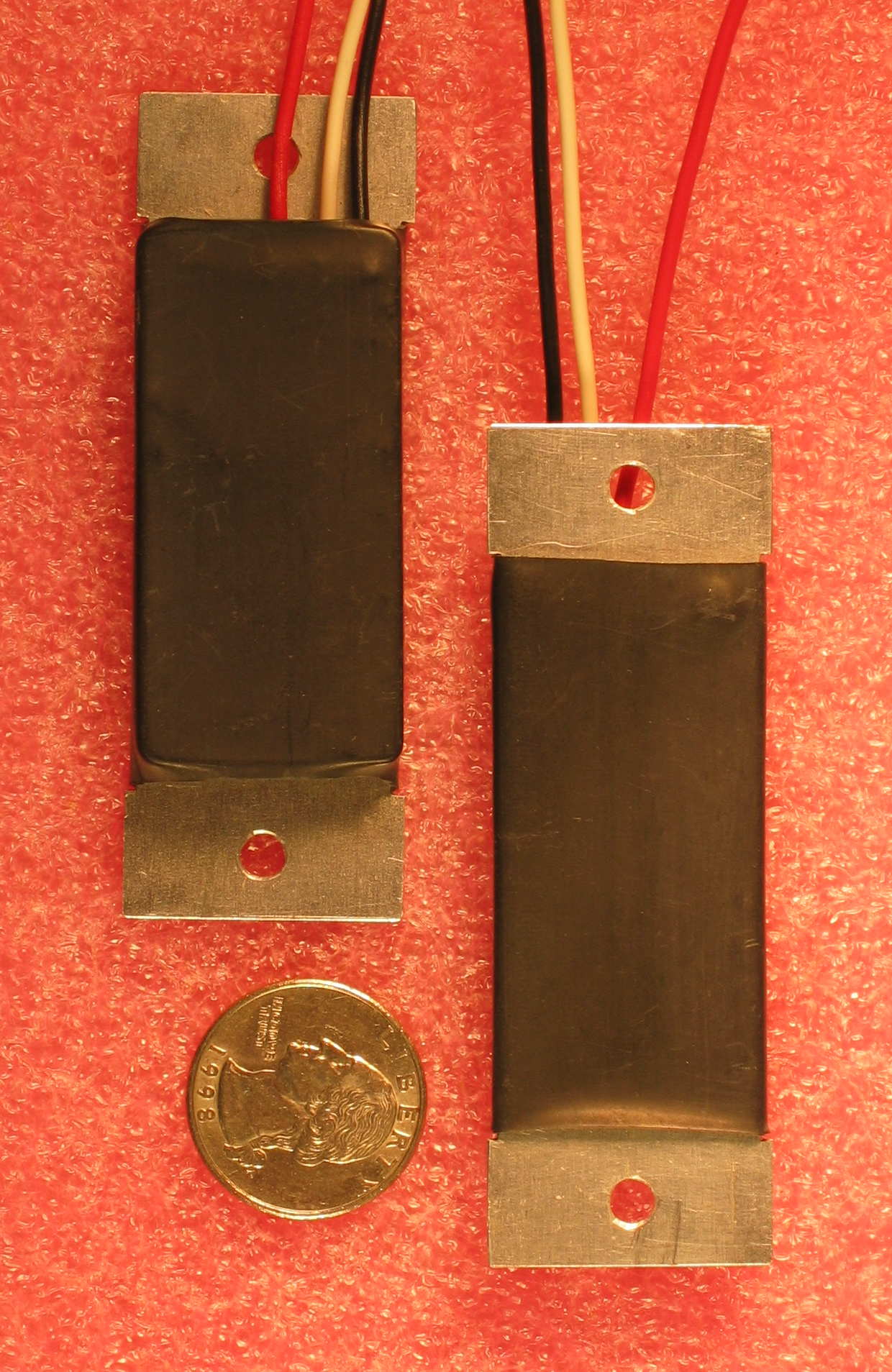FLICKERLLAMP
View
video clips: Day Dusk Night
INSTRUCTIONS FOR USING THE FLICKERLLAMP (TM)
MODULE
WHAT DOES THE FLICKERLLAMP (TM) MODULE DO?
The FlickerLlamp (TM) module gives a warmth and
personality to an incandescent electric lamp that
is reminiscent of a live flame. As such, it
should be installed in a fixture to enhance that
effect. The Glowescent (TM) DecorLite (TM) light
bulb manufactured by Westinghouse is particularly
effective with the FlickerLlamp (TM). It should
be installed in a fixture styled to enhance the
effect, with the socket at the bottom so that the
flame shape of the bulb is oriented correctly.
Another nice effect can be obtained by installing
a bug light bulb inside a frosted chimney. The
yellow tint of the bulb gives the warmth of a
flame and the chimney obscures the shape. Another
way to obscure the bulb is to use pebbled glass
in the fixture instead of clear glass. The
pebbled glass distorts the light in a way that
makes the light seem to move about as you move
past it.
One thing that should be kept in mind is that a
natural flame is not terribly bright. Using a
high wattage light bulb will not give the desired
effect. A 40 watt bulb will give off enough light
to be useful and still have the desired effect.
If useful light is not a consideration, a lower
wattage may be a better choice.
WHERE DO I INSTALL THE FLICKERLLAMP (TM)
MODULE?
The FlickerLlamp (TM) module is small and can be
installed almost anywhere. It will fit in a wall
box next to the switch, or in the base of a
fixture. If used in an outdoor fixture, it must
be installed in such a way as not to be exposed
directly to precipitation or heavy condensation.
Holes are provided on the mounting plate to mount
it to a fixture or a box,, however, there is no
requirement that it be hard mounted. In any
installation, care must be taken that the metal
mounting plate not come in contact with live
circuit terminals or uninsulated wires.
HOW DO I CONNECT THE FLICKERLLAMP (TM) MODULE
TO MY LAMP?
The accompanying instruction sheet depicts the
wiring for the FlickerLLamp (TM) module. The
optional mode switch that is depicted in the
wiring diagram can be used to turn off the
FlickerLLamp effect in applications where it may
not always be wanted. Wiring should always be
done by a qualified person with the power
disconnected.
CAN I CONNECT MORE THAN ONE LAMP TO A
FLICKERLLAMP (TM) MODULE?
The FlickerLLamp Module is designed to drive a
maximum of 200 watts of INCANDESCENT LAMPS ONLY.
This could be up to five 40 watts bulbs or eight
25 watt bulbs. Bulbs of differing wattage can be
connected to the same module, as long as the
total wattage does not exceed 200 watts.
When using the FlickerLlamp (TM) with more than
one bulb, the best effect can be achieved by
using more than one module so that all of the
lamps do not flicker in unison. For example, when
installing a row of fixtures along a driveway,
two FlickerLlamp modules should be used and the
fixtures along the drive wired alternately to the
two, such that no two adjacent lamps will be in
unison and the eye will see them as being
independent. The same is true for wall sconces
along a hallway. When wiring multiple bulbs in a
chandelier, two to four modules should be used so
that the eye cannot pick out the lamps that are
flickering in unison.
HOW DOES THE FLICKERLLAMP (TM) AFFECT BULB
LIFE?
The FlickerLlamp (TM) has been tested in field
trials lasting several years. In one test
configuration, the lamps were run continuously
day and night. In another test configuration, the
lamps were connected to a dusk to dawn sensor
switch. In both tests, the bulbs needed to be
replaced every 8 to 12 months. This is similar to
what might be expected from an incandescent light
bulb in a normal application.
WILL THE FLICKERLLAMP (TM) MODULE WEAR OUT?
The FlickerLlamp is an all solid state design,
with no filaments, heaters, contacts, or other
components that are subject to wear or
degradation with use. It is maintenance-free and,
if operated within its specified limits, should
give years of service.
|

